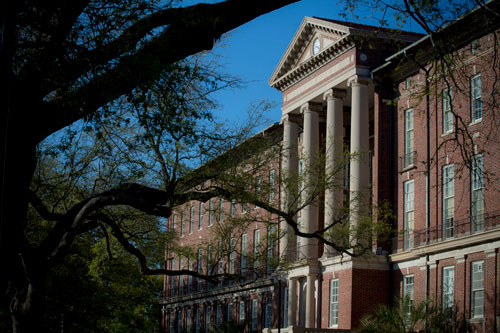“Police Violence and the Underreporting of Crime” (with Daniel Gingerich) Economics and Politics.
This paper examines the relationship between police violence and the reporting of crime. Utilizing original data from a large-scale household survey conducted in Costa Rica from October 2013 to April 2014 (n = 4,200), we find that the observation of police violence significantly reduces citizens’ willingness to report crime. The implications of this finding are explored using a game-theoretic model of crime, crime reporting, and police misconduct. The model reveals that although the prospect of police violence against criminals may generate a degree of deterrence for criminal behavior, permissiveness toward police violence also raises expectations about the likelihood of police abuse against law-abiding citizens. Consistent with our empirics, this reduces citizens’ propensity to report crime, thereby fostering a climate of impunity for criminal activity
Read More on the Wiley Online Library website.
“Merit, Tenure, and Bureaucratic Behaviour: Evidence from a Conjoint Experiment in the Dominican Republic” (with Christian Schuster) Comparative Political Studies
Bureaucratic behavior in developing countries remains poorly understood. Why do some public servants—yet not others—work hard to deliver public services, misuse state resources, and/or participate in electoral mobilization? A classic answer comes from Weber: Bureaucratic structures shift behavior toward integrity, neutrality, and commitment to public service. Our study conducts the first survey experimental test of the effects of bureaucratic structures. It does so through a conjoint experiment with public servants in the Dominican Republic. Looking at merit examinations and job stability, we find that Weber was right—but only partially. Recruitment by examination curbs corruption and political services by bureaucrats, while enhancing work motivation. Job stability, by contrast, only decreases political services: Tenured bureaucrats are less likely to participate in electoral mobilization. Examinations thus enhance the quality of bureaucracy (motivation and lower corruption) and democracy (electoral competition); job stability only enhances the quality of democracy.
Read More on the SAGE journals website.
“Corruption as a Self-Fulfilling Prophecy: Evidence from a Survey Experiment in Costa Rica” (with Ana Corbacho, Daniel Gingerich, and Mauricio Ruiz Vega) American Journal of Political Science 60(4): 1077-1092 (2016).
An influential literature argues that corruption behaves as a self-fulfilling prophecy. Its central claim is that the individual returns to corruption are a function of the perceived corruptibility of the other members of society. Empirically, this implies that if one were to exogenously increase beliefs about societal levels of corruption, willingness to engage in corruption should also increase. We evaluate this implication by utilizing an information experiment embedded in a large-scale household survey recently conducted in the Gran Área Metropolitana of Costa Rica. Changes in beliefs about corruption were induced via the random assignment of an informational display depicting the increasing percentage of Costa Ricans who have personally witnessed an act of corruption. Consistent with the self-fulfilling prophecy hypothesis, we find that internalizing the information from the display on average increased the probability that a respondent would be willing to bribe a police officer by approximately .05 to .10.
Read More on the Wiley Online Library website.

